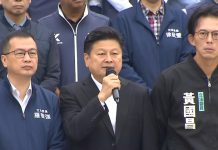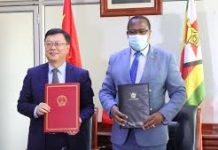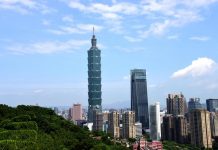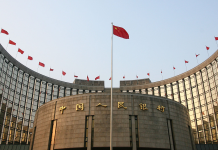BEIJING: The Political Bureau of the Communist Party of China (CPC) Central Committee held its 38th group study session. Xi Jinping, general secretary of the CPC Central Committee, presided over the session, which is about regulating and guiding the healthy development of capital in China according to law.
Xi stressed that capital is a major factor of production in the socialist market economy. How to regulate and guide its development in the socialist market economy is an issue of economic and political importance and an issue of theoretical and practical significance. This issue concerns our basic economic system of socialism, the fundamental national policy of reform and opening up, high-quality development and the pursuit of common prosperity. It also matters to our national security and social stability.
We must deepen our understanding of different types of capital and their roles, regulate them and guide their sound development, give full play to the positive role of capital as an important factor of production, according to Xi.
Professor Liu Yuanchun, vice president of Renmin University of China, gave a lecture on the issue and offered advice. The political bureau members listened carefully and had discussions.
Xi delivered an important speech when presiding over the session. He stressed that in the course of endeavors over the past century, the CPC has been upholding the basic tenets of Marxism, and deepening its understanding of capital and exploring principles and policies to regulate and guide the healthy development of capital, based on China’s actual conditions and major tasks at different periods.
Since China adopted the reform and opening up policy at the third plenary session of the 11th CPC Central Committee in the late 1970s, the country has shaken off the shackles of obsolete mindset on ownership issues, and taken capital, a major factor of production, as a tool for allocating market resources and a means for pursuing economic development. A socialist country can also use various types of capital to promote economic and social development.
The country has then gradually established a basic socialist economic system under which public ownership is the mainstay and diverse forms of ownership develop together, as well as an income distribution system under which distribution according to work is the mainstay while multiple forms of distribution exist alongside it. It has put forward and held onto the unswerving commitment to consolidating and developing the public sector and to encouraging, supporting, and guiding the development of the non-public sector.
Since the 18th CPC National Congress in 2012, China has upheld and improved the basic socialist economic system, Xi noted. The principle of unswervingly consolidating and developing the public sector while encouraging, supporting and guiding the development of the non-public sector has been included in the basic policy of upholding and developing socialism with Chinese characteristics in the new era, and established as a part of the major principles and policies of the Party and the state.
We have deepened reform and opening up in all respects, stressed the need to let the market play the decisive role in the allocation of resources and the government better fulfill its role, and created a more favorable market and legal environment for the development of all types of capital. We have taken stronger actions against monopolies, curbed the disorderly expansion of capital, guarded against risks, and safeguarded fair market competition. We have paid attention to preventing and defusing financial risks, reversing the tendency of capital being diverted out of the real economy, and addressing risks arising from non-performing assets and bubbles.
We have also kept opening wider, and strived to foster a new development pattern with the domestic market as the mainstay and domestic and overseas markets reinforcing each other, as well as new systems for a high-standard open economy. With a deeper understanding of the nature, function and laws of capital, we have been improving our governance on capital operation.
During the more than 40 years of reform and opening up, capital, together with other production factors like land, labor, technology and data, has contributed to the prosperity and development of our socialist market economy, Xi stressed. All types of capital deserve full recognition for their positive roles in this process. At present, capital in China comes in various forms, such as state-owned, collective, private, foreign and mixed-ownership capital, which is witnessing significant expansion in scale, further diversification in ownership, faster pace of operation and massive inflows of international capital.
Xi noted that we must uphold the leadership of the Party and China’s socialist system, and keep the correct political orientation. We should take a problem-oriented and systematic approach, base ourselves on the current situation and take a long-term view. We should combine channeling and blocking efforts on a categorized basis and balance development and security, efficiency and equality, vitality and order, and domestic and international imperatives.
It is necessary to stimulate the vitality of capital of all types, including non-public capital, and give full play to its positive role in promoting scientific and technological progress, boosting market economy, facilitating people’s lives and participating in international competition, so that it always follows and serves the interests of the people and the country, and contributes to building a modern socialist country in all respects and realizing the rejuvenation of the Chinese nation.
Xi stressed that we should intensify the research on capital theories in the new era. How to regulate and guide the healthy development of capital under the socialist system is an important theoretical and practical issue that Marxist political economists must study and solve in the new era.
It is necessary to sum up experience and draw lessons from handling capital since the founding of the People’s Republic, especially since the reform and opening up. We should deepen the research on capital theories under the socialist market economy, guide practice with rational theories, promote the sound growth for all types of capital, and give full play to its role in boosting productivity, creating social wealth and improving people’s lives.
Xi pointed out that we must put the various types of existing capital in our society into historical, developmental and dialectic perspectives if we are to have a clear understanding and good command of them. Under the framework of socialist market economy, capital plays a pivotal role in the distribution of various production factors. As far as the development of social productivity is concerned, capital is an important driver, whose potential must be fully tapped.
At the same time, we must be well aware that profit-seeking as capital’s intrinsic nature must be subject to regulation and constraints, otherwise capital’s unbridled development will cause inestimable damage to our country’s economic and social development, Xi noted.
As a result, we must get our foothold in the new development stage, implement the new development philosophy, build a new development pattern and strive for high-quality development, he stressed. Relations between different forms of capital must be handled well, and their different nature and roles must be clarified so that they can be regulated and guided for healthy development, Xi added. -The Daily Mail-China Daily News Exchange Item





